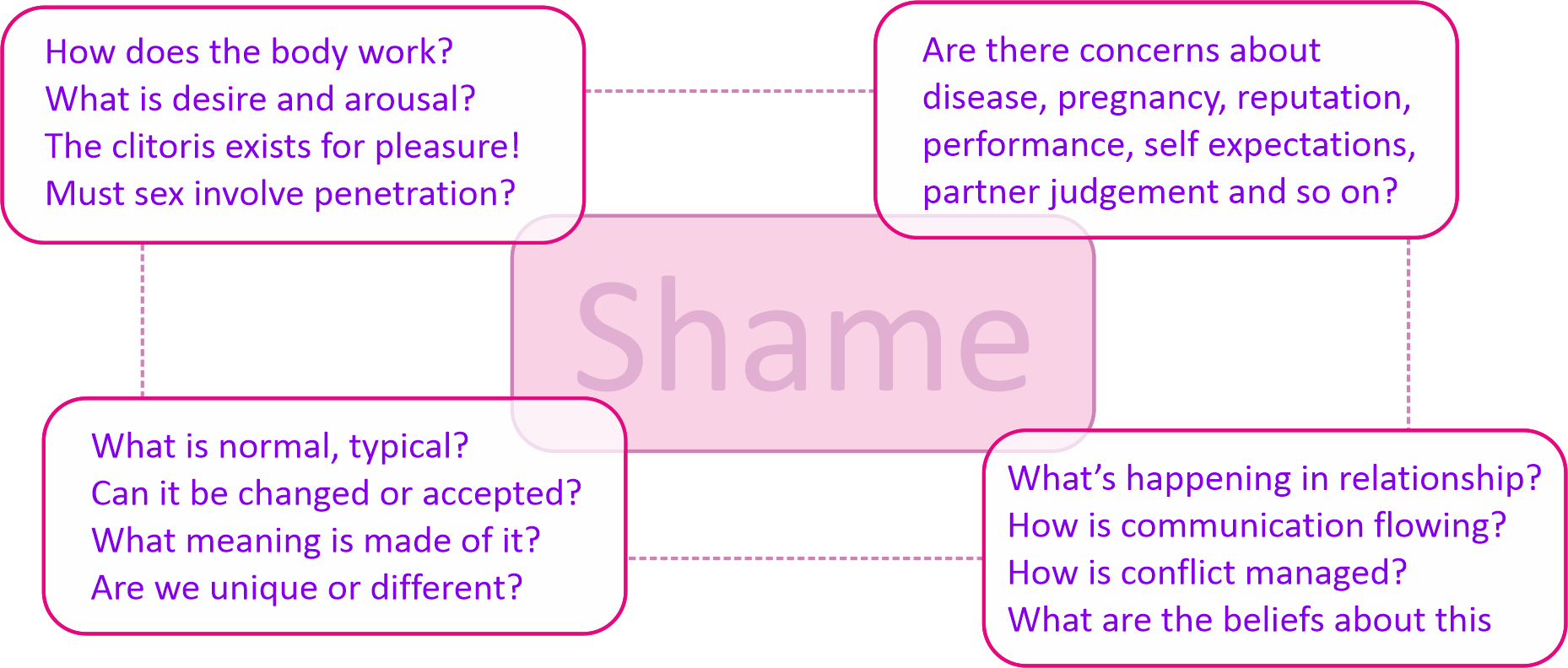Vaginismus
What is ‘Vaginismus’?
Vaginismus is recurring involuntary pelvic muscle spasms in the vagina that painfully interfere with letting anything inside even if you want to. The name is the same in the classical medical tradition and it is also sometimes called genito-pelvic penetration disorder (GPPD). Vaginismus is generally seen as an instinctive body reaction (like a flinch) to a psychological relationship to penetration. We work with this if the condition is causing the client distress.
What must be established first
There are many reasons why a woman may experience pain during penetration and it’s important to understand any medical reasons before further psychosexual work can take place. So if you have not spoken to your GP about the problem yet, you will be encouraged to do so. Your doctor will be skilled and experienced in the medical aspects and should put you at ease to talk about it. Once your GP has ruled out any underlying medical issues we can get to work.
Understanding the Context
When does the problem occur and how long has it been happening? Are other related problems happening? How do you feel about your partner(s) if relevant? Do you feel pain in solo sex or other circumstances such as insertion of a tampon or finger? What is your attitude towards sex and masturbation? How well do you understand your (and your partner’s) anatomy? Do you use porn and what is your masturbation style? Do you smoke, drink, use recreational drugs or have lifestyle behaviours that can impact arousal response? Has anything affected you in the past? Have previous sexual experiences been painful and shaped your views or expectations? Is the difficulty context or mood dependent?
Understanding your perspective
It’s understandable why pain (or the fear of pain) would cause you distress and possible aversion to penetration or the thought of it. What are your underlying beliefs that inform the distress. If some ‘shoulds’ emerge there may be opportunities for challenge, re-framing and psycho-education. Good availability of clear information about the female sexual anatomy and arousal model is now widely available. It’s possible that you might have some culturally conditioned disengagement with your entitlement to informed awareness of your anatomy and pleasure processes. What part may self image and anxiety be playing? Do you need additional vaginal lubrication and what is your (or your partner’s) attitude towards that? What is your relationship with your own genitals? Can you (and perhaps your partner) become an understanding friend of your vagina and its needs?

Exercises
If appropriate there are a number of exercises that can help you gain confidence, understanding of your unique arousal style and mastery of your habitual thought processes.

